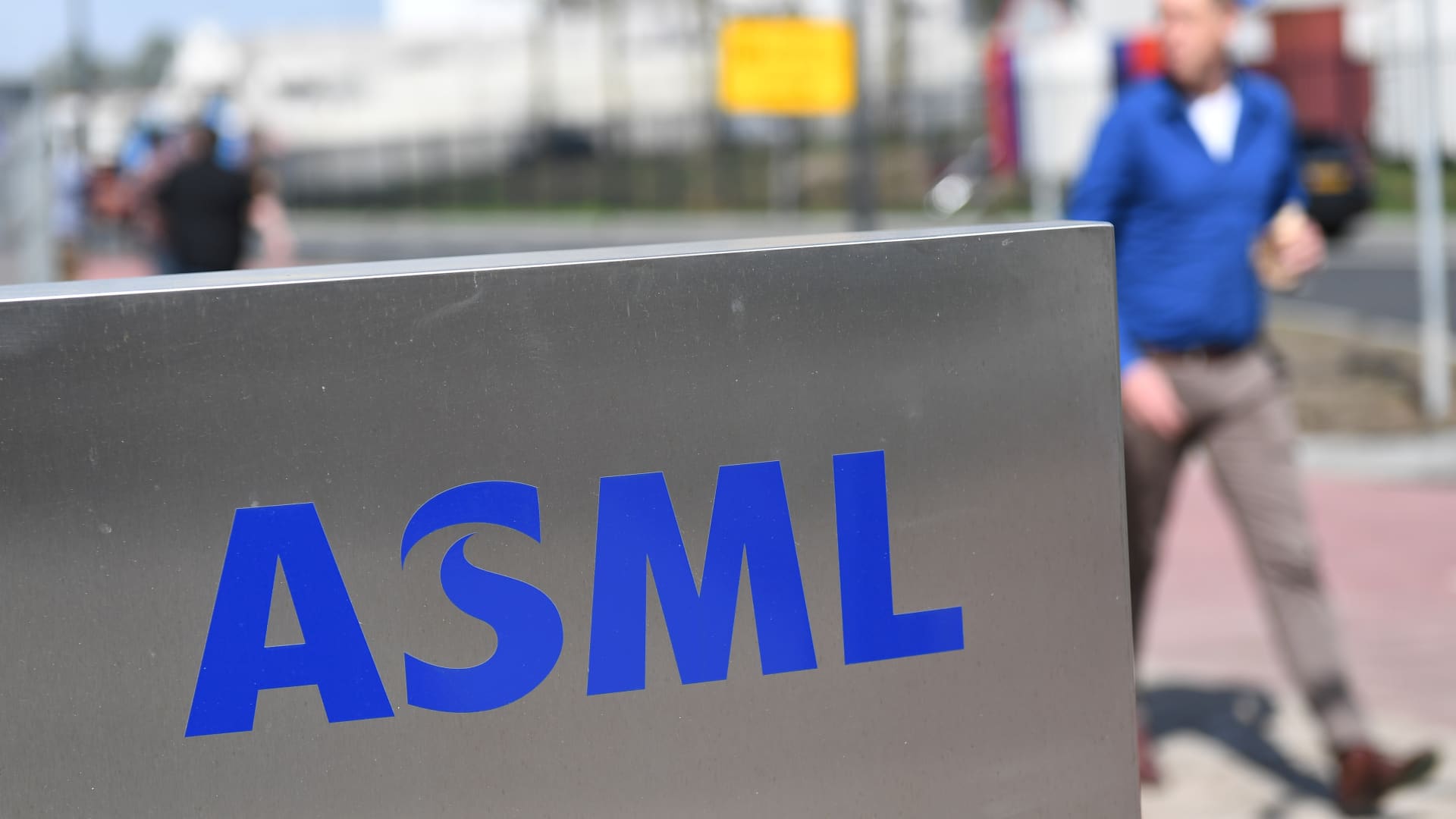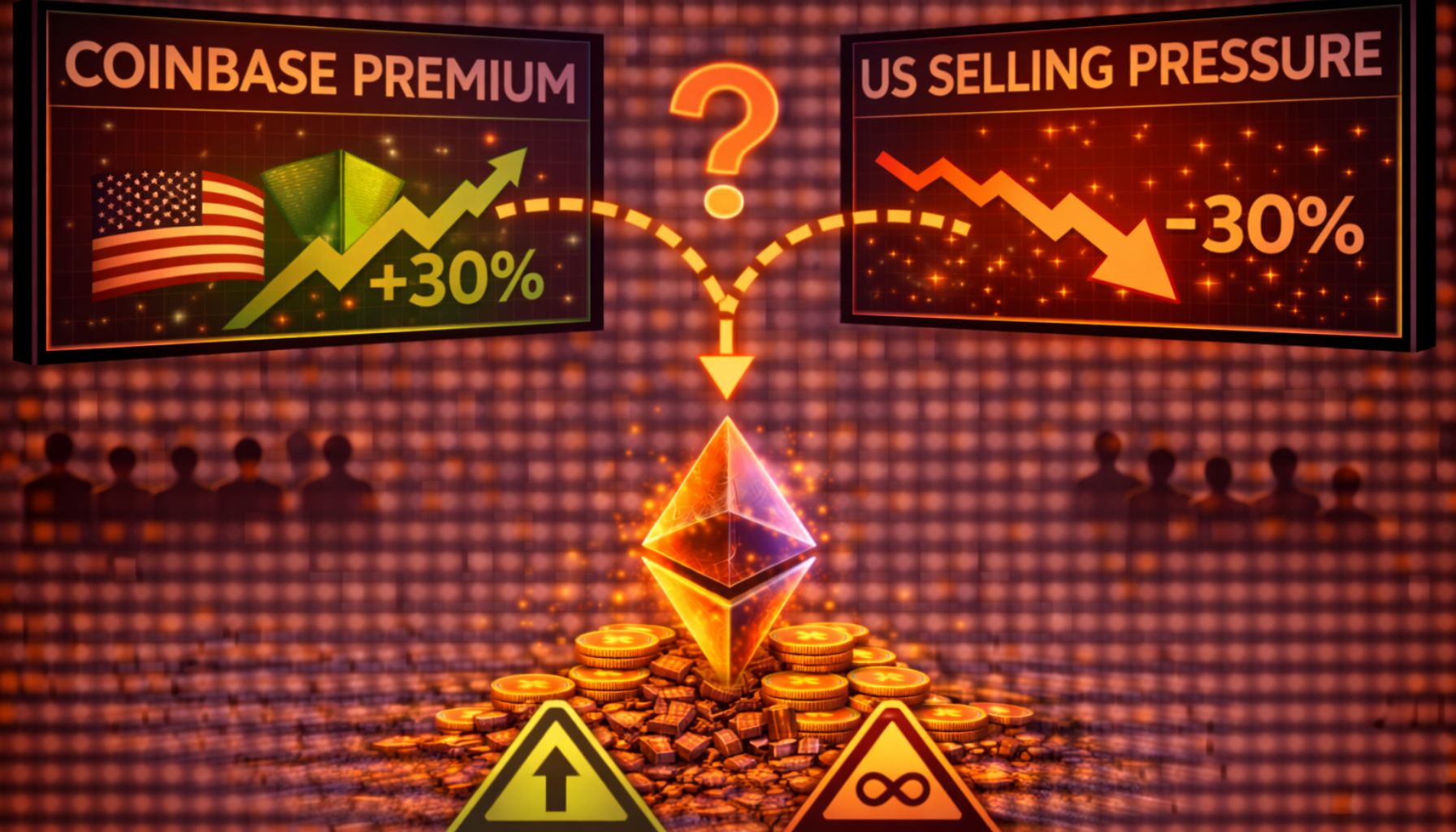Dutch firm ASML makes one of the most important pieces of machinery required to manufacture the most advanced chips in the world. U.S. chip curbs have left companies, including ASML, scrambling to figure out what the rules mean in practice.
Emmanuel Dunand | AFP | Getty Images
ASML, one of the most important semiconductor equipment companies in the world, beat top and bottom line expectations, but said it forecasts its revenue for this year will be similar to that of 2023.
Here’s how ASML did versus LSEG consensus estimates:
- Net sales: 7.2 billion euros ($7.82 billion) versus 6.9 billion euros expected
- Net profit: 2.05 billion euros versus 1.86 billion euros expected
ASML had previously said that it expects fourth-quarter net sales between 6.7 billion euros and 7.1 billion euros with a gross margin between 50% and 51%.
Net sales for the fourth quarter rose 12.5% year-on-year, while the company reported a gross margin of 51.4% in the fourth quarter.
ASML said it expects first-quarter net sales of between 5.0 billion euros and 5.5 billion euros.
“We maintain our conservative view for the total year and expect 2024 revenue to be similar to 2023. We also expect 2024 to be an important year to prepare for significant growth that we expect for 2025,” said ASML CEO Peter Wennink said in a statement on Wednesday.
ASML reported 27.6 billion euros in revenue for 2023, higher than the 21.2 billion euros of the year before. That was a 30% year-on-year rise.
China sales in focus
ASML, a Dutch company that makes a machine required in the manufacturing of the world’s most advanced chips, has been caught in the broader technology battle between the U.S. and China.
The Dutch government, following U.S. pressure, introduced curbs in June on the export of advanced semiconductor equipment. And in October, the U.S. tightened its own export controls on advanced semiconductors and chipmaking tools to China.
This month, ASML said the Dutch government partially revoked its license for the shipment of its NXT:2050i and NXT:2100i lithography systems in 2023 to China. These are systems required to make less advanced chips.
In a pre-recorded video released Wednesday, ASML Chief Financial Officer Roger Dassen said the company does not expect to get export licenses for the NXT:2000i and more advanced machines. Dassen also said it expects some China chip manufacturing plants not to get export licenses for the NXT:1970i and NXT:1980i immersion tools.
ASML previously said that export restrictions would impact 10% to 15% of China sales. There would be a similar impact in 2024, Dassen said.
ASML’s top end tools, known as extreme ultraviolet lithography machines, have never received an export license. To date, ASML has not shipped one of these machines to China.













